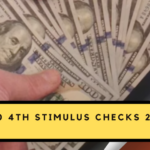The Department for Work and Pensions (DWP) is addressing an important issue that has left thousands of pensioners underpaid over the years. If you’re wondering whether you’re eligible for a share of the £12,000 compensation payments, you’re in the right place. This guide will help you understand everything you need to know about this back payment plan and how it may benefit you.
For decades, administrative errors and outdated systems meant many pensioners did not receive the full state pension payments they were entitled to. The DWP’s Back Payment Plan is here to correct these mistakes, ensuring those affected get the money they are owed. Whether you’re a pensioner yourself or you’re helping a family member, this guide will provide all the details to help you access the compensation.
£12,000 DWP’s Back Payment Plan Compensation Payment
| Details | Information |
|---|---|
| Affected Groups | Married women, widows, over-80 pensioners |
| Compensation Amount | Up to £12,000 |
| Main Cause | Administrative errors in state pension calculations |
| Deadline for Reviews | End of 2024 |
| Official DWP Website | gov.uk |
What Is the £12,000 DWP Back Payment Plan?
The £12,000 DWP back payment plan is an important program aimed at fixing long-standing issues with state pension payments. It addresses mistakes made over many years, especially affecting certain groups of pensioners. This includes married women, widowed pensioners, and people over 80. If you belong to any of these groups, this could be a life-changing opportunity to receive money that was owed to you. To get started, check your pension records and contact the DWP for more information.
Understanding the DWP’s Back Payment Plan
In 2021, the DWP launched the Legal Entitlements and Administrative Practices (LEAP) exercise. This initiative was designed to find and fix underpaid pensions. The main focus is on three key groups:
- Married Women and Civil Partners: Many women didn’t see their pensions increase according to their spouse’s National Insurance contributions.
- Widowed Pensioners: These pensioners should have received higher payments after the death of their spouse, but many missed out on these increases.
- Over 80 Pensioners: People in this group are entitled to a non-contributory pension, but some have been underpaid.
This plan is not just about providing compensation. It’s about fixing decades of inequity in the pension system, helping pensioners enjoy the financial security they deserve.
Who Is Eligible for the DWP Compensation Payment?
Let’s break it down further to help you understand if you might be eligible for the back payment.
1. Married Women and Civil Partners
If you are married or in a civil partnership and your state pension is based on your spouse’s National Insurance record, you could qualify for an increase in your pension. Here’s why:
- Before March 2008, some women had to apply manually for a pension increase, but many were not informed about this requirement.
- After March 2008, the system was meant to adjust pensions automatically, but this failed in many cases.
For example, Mrs. Smith was receiving £85 a week, even though she was entitled to £120 based on her husband’s National Insurance record. She could now be eligible for back payments worth thousands of pounds. This could be a major boost, especially during retirement.
If you think this might apply to you, check your pension statements for any inconsistencies.
2. Widowed Pensioners
If your spouse has passed away, your pension should have been recalculated to reflect their National Insurance contributions. You might be eligible for back payments if:
- Your pension did not increase after your spouse’s death.
- Do you think the recalculation was not done correctly?
Many widowed pensioners have faced financial struggles due to these errors, but now they have a chance to claim what’s rightfully theirs.
Action: To claim, contact the DWP with your spouse’s National Insurance details. Make sure you have the marriage certificate and death certificate ready.
3. Over 80 Pensioners
If you’re over 80, there’s a specific non-contributory pension rate that applies, regardless of your National Insurance contributions. Unfortunately, some people did not get the full pension amount they were entitled to because of errors.
For example, Mr. Jones, who is 82, was getting £64 per week, even though he should have been receiving £85. He is now eligible for the difference, which is backdated to the number of weeks he was underpaid. Correcting this issue can significantly improve the quality of life for pensioners in this group.
The DWP is reaching out to pensioners in this group, but it’s still a good idea to contact them yourself if you think you may have been affected.
How to Check Your Eligibility for the DWP’s Back Payment Plan
If you believe you belong to one of these groups, here’s how you can check your eligibility for the back payment.
Step 1: Gather Your Documents
- Your National Insurance records.
- Your marriage or civil partnership certificate (if applicable).
- The death certificate of your spouse (if applicable).
Step 2: Contact the Pension Service
You can contact the Pension Service by calling the State Pension helpline at 0800 731 0469. Alternatively, you can visit the official DWP website for online assistance.
Step 3: Request a Review
When you get in touch with the DWP, explain your concern and provide any necessary documents. Be clear about why you believe you are entitled to back payments.
Step 4: Wait for the Outcome
The review process can take several weeks or months, but the DWP aims to resolve all cases by the end of 2024. Make sure you keep a record of all your communications with them.
Conclusion
The DWP’s Back Payment Plan is a vital initiative that could help thousands of pensioners receive the money they are owed. If you fall into one of the affected groups, don’t hesitate to check your eligibility and claim what’s rightfully yours. Remember to contact the DWP, gather your documents, and be patient as you await a resolution.
Note: Every piece of content is rigorously reviewed by our team of experienced writers and editors to ensure its accuracy. Our writers use credible sources and adhere to strict fact-checking protocols to verify all claims and data before publication. If an error is identified, we promptly correct it and strive for transparency in all updates.
Premlata is a seasoned finance writer with a keen eye for unraveling complex global financial systems. From government benefits to energy rebates and recruitment trends, she empowers readers with actionable insights and clarity. When she’s not crafting impactful articles, you can find her sharing her expertise on LinkedIn or connecting via email at biswaspremlata@gmail.com.







